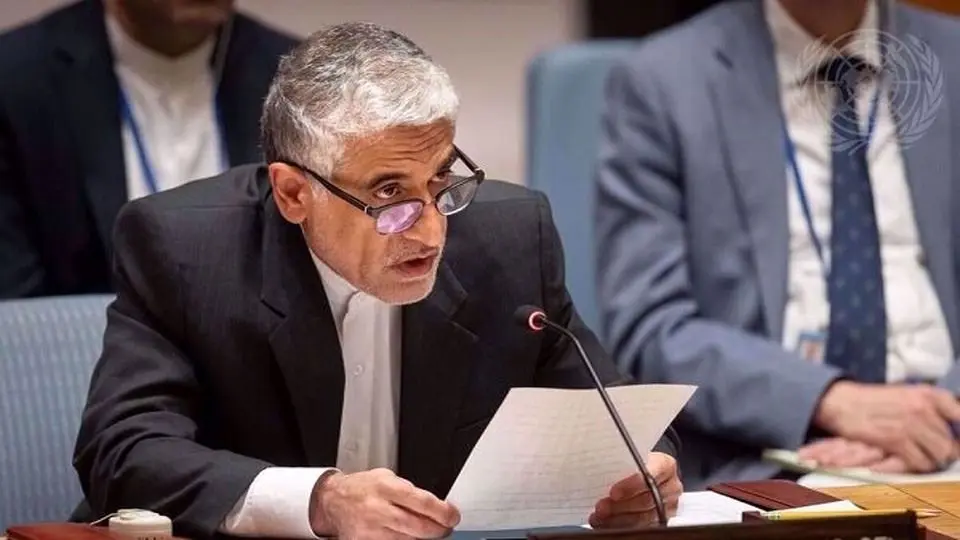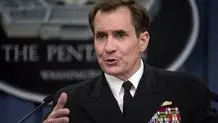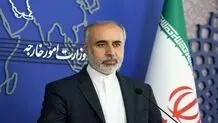Iran backs forming group of states to end Ukraine war
Iranian UN envoy voiced Tehran's readiness to establish a group of cross-regional countries to help end the conflict in Ukraine which marks its first anniversary on Friday.

MEHR: Iranian UN envoy voiced Tehran's readiness to establish a group of cross-regional countries to help end the conflict in Ukraine which marks its first anniversary on Friday.
Iran's ambassador and permanent representative to the United Nations (UN) Amir Saeed Iravani made the remarks while addressing the UN General Assembly's eleventh emergency special session on the Ukraine conflict on Thursday.
He said that Tehran "supports the idea of leveraging the Secretary General's capacity, as mandated by the UN Charter, to establish a cross-regional group of independent, competent, impartial countries. The Islamic Republic of Iran is ready to contribute to this process."
This can facilitate dialogue and help find a way out of the current "impasse", he added.
Iravani stressed that Iran's position with regard to the war in Ukraine has not changed. "We are steadfast in our commitment to upholding the principles and purposes enshrined in the Charter of the United Nations, including the principles of sovereign equality and territorial integrity of States."
"We urge all parties to fully comply with their obligation on the international humanitarian law including taking constant precautions to protect civilians and critical infrastructure and facilitating access to safe and unfettered access to humanitarian aid for those in need," said the diplomat.
Noting that the ongoing conflict is "detrimental to both parties as neither can earn any long-term advantage", he added that "it is crucial for all involved parties to abandon the military ambitions and prioritize finding a peaceful diplomatic resolution."
Iravani also pointed to the need to solve the root causes of the conflict. "By prioritizing dialogue and diplomacy and addressing the underlying cause of the conflict we can take a crucial step toward achieving a solution that not only mitigates the devastating humanitarian part but also restores regional stability and security," he said.
"As a first step, we call for an immediate and comprehensive ceasefire, coupled with the provision of humanitarian aid to those in need, which should take precedence over all else.”
The diplomat also criticized the draft of the proposed resolution, saying, "unfortunately, the proposed text falls short of comprehensively and impartially addressing all aspects of the issue and fails to acknowledge the conditions and provocations that have contributed to the crisis."
He noted that the actions and policies of certain sponsors of this resolution raise doubts about the political will to resolve the dispute peacefully.
Elsewhere in his remarks, Iravani responded to "Iranophobic" allegations made by a representative of the Israeli regime to the UN during the UNGA a day earlier.
"Iranophobic campaign and widespread systematic dissemination of disinformation and baseless allegations against Iran have always been one of the main elements of the statements by the Israeli regime at the UN," he said.
"The Israeli regime cannot conceal its brutalities in Palestine or distract attention from its long-standing malign activities and demonic policies in other countries," he said, adding that the regime is "notorious for its atrocities and apartheid policies against the people of Palestine and the region by targeting innocent people including women and children."
The Israeli regime continues to commit flagrant and systematic violations of human rights and all norms of international humanitarian law, the diplomat said.
According to the diplomat, the regime possesses "all types of weapons of mass destruction as well as the most sophisticate conventional weapons" and continues to "endanger peace and security in the region and beyond" while also rejecting international calls to join international legally binding instruments banning WMDs.
"Nevertheless it attempts to portray Iran's conventional weapons capabilities or its exclusively peaceful nuclear program as a challenge to regional stability," he said while also strongly rejecting the allegations that Iran has sent military drones to Russia for use in the Ukraine war.




